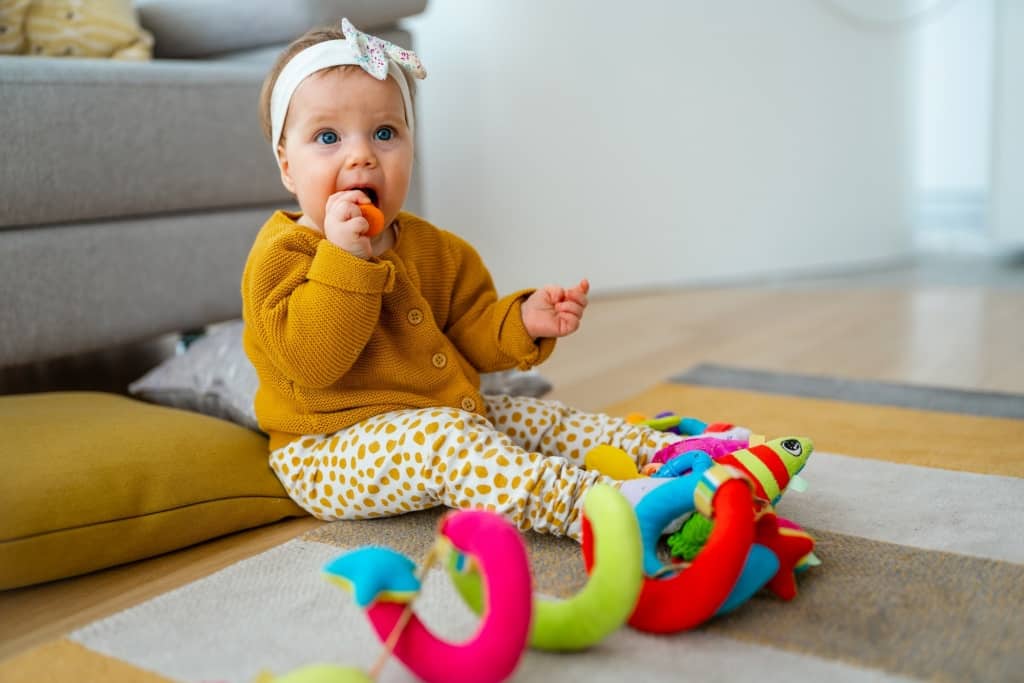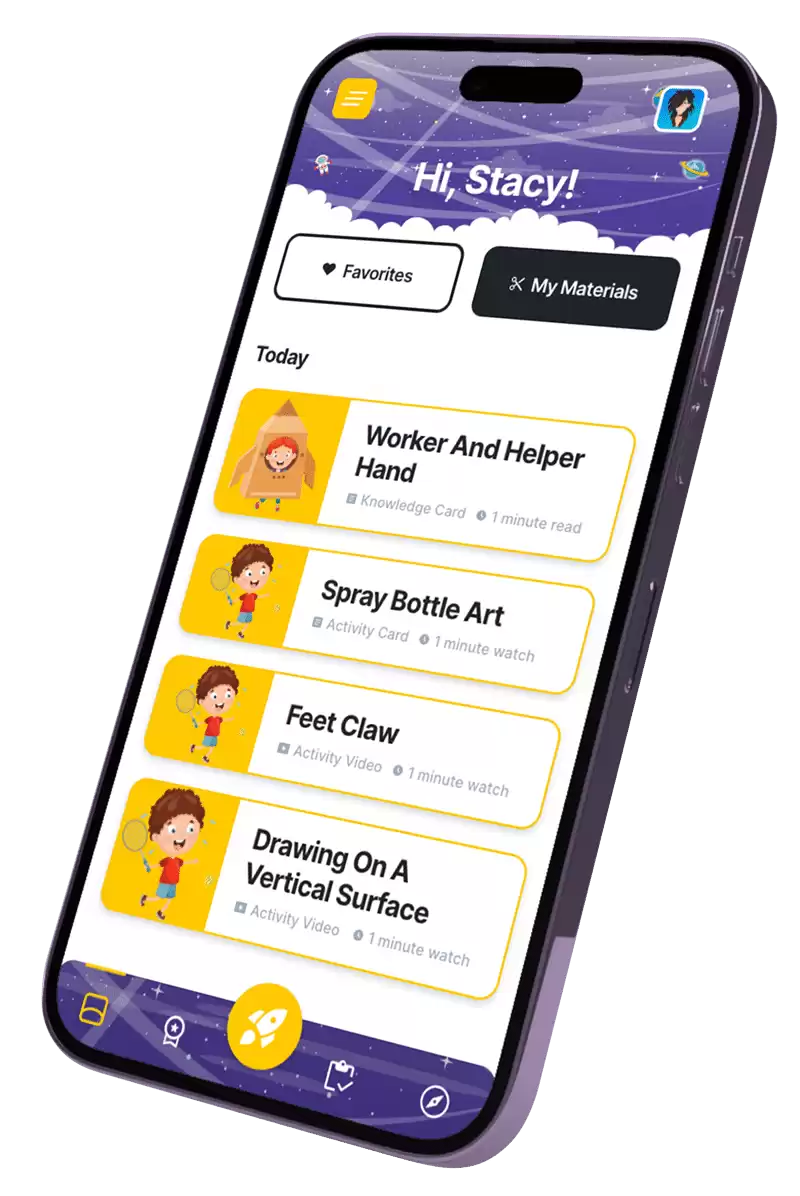You’re never too old to play, but did you know that playing is an important part of a child’s development? There are different play skills that children learn from infancy throughout their childhood that are crucial to social, psychological, and physical development that can affect their lives and relationships as adults.
Play skills are different skills gained through playing at different stages of life. Different styles of play will teach different skills and are expected to be seen and reinforced at each stage of infancy, toddlerhood, and childhood.
Psychologists and other doctors have researched for over a century observing children and these specific play styles and the skills developed while playing. While they have a great basis for the skills attained through play, more research is being done due to the increase in the use of technology in young children.
What are Play Skills?
Learning begins at birth, and while you can’t educate an infant and toddler in school, they acquire most of their learning through play. Not much thought goes into playing peek-a-boo with an infant or building and crushing block towers with a toddler. These small games are teaching children and are so much more than just something to do to occupy their time.
Jean Piaget studied children’s cognitive development and has a well-known and used theory on the stages children should be in cognitive development. All of a child’s cognitive development milestones can be achieved through play, as studied by many other psychologists after him.
Children learn and fine-tune many skills through the trial and error of play. Children learn how to control parts of their environment, and they also learn the consequences of their actions. Other things that little ones learn through play are:
- Emotional regulation and social skills
- Verbal and non-verbal language
- Problem-solving and higher executive functions
- Fine and gross motor skills and body awareness
Emotional Regulation and Social Skills
How we comfort ourselves and react to different situations now is rooted in what we learned as children. Through play, children will learn how to self-soothe and how to appropriately react when something makes them happy, sad, angry, or any other feelings that can come about when playing.
Emotion regulation is important to teach at a young age because if a child is unable to acknowledge and understand their emotions, it can lead to tantrums, difficulties making friends, and inappropriate behaviors.
Emotion regulation in early childhood is not only important for children to learn how they feel, but to gain empathy and how to react when another child feels sad or excited. Play is an excellent way to teach children emotional awareness and perspective taking.
Language Skills
Written language has been around for about 5,500 years, but before that, people and animals communicated with words, sounds, and body language. These three are the most basic yet complex ways we communicate with each other.
Research has shown that the amount of words an infant or toddler hears per day is a strong predictor of their understanding of a language as they are older. Talking is an important aspect of playtime. It can teach words and associations of words with emotions.
Body language is also very important for children to learn along with verbal language. Through play, children will learn different facial expressions associated with emotions. They will also learn through imitation different postures and walking styles, which helps them develop social skills.
Problem Solving and Higher Executive Functions
Life throws anything and everything at us, and when life hands us lemons, what do we do? We learn how to solve problems, break solutions up into different smaller tasks, and learn how to make decisions starting as toddlers.
Higher executive functions and being able to plan and sequence events are needed throughout our life. It helps us prioritise and focus on different tasks, control impulses and emotions, and be able to know the pros and cons of decisions. This play skill is extremely important because it encompasses all of the others.
Piaget stated that you can’t teach a child how to solve problems. You can guide them, but ultimately they will discover how to solve their problems on their own. This helps boost confidence and creativity, especially if how a child chooses to solve a problem is successful.
Fine and Gross Motor Skills
In early childhood, when children are given chances to play, they can develop a range of skills through them playing, including fine and gross motor skills. These are underlying functional skills for daily life.
Writing with a pen, typing on the computer, getting out of bed, and drinking from a water bottle are all motions we do every day. We learn how to sit up, crawl, walk, run, and do cartwheels from infancy through childhood. All of these require fine (working with small muscles) and gross (working with bigger muscles) motor skills and body awareness.
The Importance of Play
Playing is the first schooling that any human gets. They learn all of the aforementioned skills through play at every stage. It is the best way to communicate the concepts to children, especially because they can’t read and understand what you’re saying to them.
Different styles of play can teach each of the skills to a different degree.
An infant playing peek-a-boo will learn:
- Object permanence and gain the emotional knowledge of how to react when something, like a teddy bear, “disappears” under a blanket.
- Fine motor skills when grasping a blanket to pull off a hidden teddy bear.
- Problem-solving skills, because they learn the teddy is missing and have to discover how to find the teddy.
- Executive function because they are prioritising finding something that is missing. They are understanding the risk of not finding a teddy and are focusing on finding it.
- Language skills with verbal language when you ask “Where’s teddy?” and exclaim “You found teddy!”, and body language of confusion, sadness, excitement, and success.
A young child building a tower with a group will learn:
- Executive functioning through learning the rules of building a tower as a team, how to control an impulse to knock over the whole tower, and how to work together on deciding where to place each block.
- Fine and gross motor skills by grasping the blocks and controlling how they are placed on top of each other. They also gain bodily awareness through learning to not accidentally knock down the tower.
- Language and emotional skills are gained by communicating with other children. They learn how to react if one child disagrees with block placement, they accidentally knock over the tower, and how to feel when the task is finished.
The Different Styles and Stages of Play
Not everyone plays the same way, but through studies, Smilansky and Sheftaya discovered that there are four distinct styles that children play from infancy through childhood. Each of these play styles builds every type of play skill in their ways.
- Functional play: the most basic style of play, how children keep themselves entertained, such as rolling a ball
- Conditional play: focuses on creativity and sensorimotor skills, like building and drawing
- Games with rules: focuses on understanding and following rules, like board games and freeze tag
- (Socio)Dramatic play: involves imitating actions they see others do and using imagination
Through her research, Parten discovered that children learn to play in different stages and build play skills within the stages as well.
- Unoccupied play is a child observing, but not playing. This is found in infancy. The child is learning more about their environment and starting to gain some bodily awareness.
- Solitary play is when a child focuses on a specific activity, such as rolling a ball. They don’t notice what others are doing around them.
- Onlooker play is when a child is still playing on their own, but they are observing what other children are doing. They probably will try to talk to the others around them as well.
- Parallel play is similar to onlooker play, however, the child will start copying other children, but not try to engage with them.
- Associative play is when children are playing, but usually doing their own activities. There is no organised activity set, such as when you walk into a preschool playroom and there are kids playing blocks, racing cars, having a tea party, and bouncing balls.
- Cooperative play is the most advanced and organised type of play. Children are playing games together and cooperating. Some examples would be role plays, Simon Says, and tag.
Helping Your Child Gain Play Skills
Children naturally will find ways to entertain themselves and learn from their environment. Providing a safe space, toys, and room for creativity will help your child learn the play skills that will carry out through their entire lives.
Being flexible and understanding of different perspectives is essential for playing with children and allowing them to develop play skills.
A child may choose to build a bridge with weak support, but through trial and error, they will learn how to make the bridge stronger. Shutting down a child’s ideas by correcting and telling them they are wrong can be very damaging to their learning process and self-esteem.
Having play dates with other children is also a great way to have your child build play skills, no matter the age! Naturally, play dates have a social element to them, but they can also provide a space for children to teach and learn from each other.
How to Know if Something is Wrong
How a child plays can be a gateway into their minds. Play therapy has been worked with for many years to help children express themselves, especially because they may not have the language to describe their emotions. Water play is a great way to test your child’s sensory needs. Some signs to watch for while a child is playing that show they need help are:
- Focusing on one activity for days
- Consistent isolation from peers, even if it is their choice
- Difficulties making friends
- Consistent inappropriate reactions to situations
- Difficulties with emotional regulation
Occupational Therapists use a range of techniques to encourage children playing to develop other skills, like social skills, emotional regulation and fine and gross motor skills. A common technique taught is following the child’s lead, which means playing the games the child is already engaged with.
If your child continuously experiences any of these during play, you should speak with a doctor. If your child is at school, talking to their teacher might also provide you with additional insight. If you think your child needs help with play skills, an Occupational Therapist can help your child develop play skills. Contact Ready Kids today.
Technological Play
Generation Z is the first generation to be born with the ability to easily have the technology available to them. Younger millennials started taking computer science courses in elementary school to learn how to type, play games, and as they got older, to code and program. Gen Z is also starting to learn coding and programming in classes and through toys.
Technology is starting to change how children play on their own and with each other. Play is focusing more on fine motor movements rather than gross. It is also changing the social and emotional development of children.
While times are changing and there have been warnings about using technology during playtime, there have been several benefits found from playing with technology, including:
- Building decision-making skills with role-playing games (RPGs)
- Problem-solving skills with RPGs
- Learning how to effectively and efficiently use modern technology so their skills will evolve with new tech
- Increase in language skills from listening to the game and researching methods online
- Team building and communication skills from multiplayer RPGs
- Emotional skills for knowing how to self-regulate their emotions for success, failure, acceptance, and rejection with multiplayer RPGs
There have been many criticisms over the years with parents monitoring the screen-time their children have. Some negative associations have been made with children and their use of technology, such as increased violence, addiction, and social isolation.
Researchers have agreed that it is up to the parents to monitor the content that their child is playing with and the amount of playtime they get. This would be done with or without technology. The main difference with technology is that children have easier access to more suggestive content than before.
Conclusion
One of the best things anyone can do for a child’s development is to allow them to confidently play in a safe environment. Play skills are the foundation of how we function as adults, whether it is socially, physically, or mentally.
There are many things parents and educators can do to allow a child to naturally gain their play skills and to assist them if they are having difficulties. If there are persistent difficulties, then you should consult with your doctor or Occupational Therapist.






